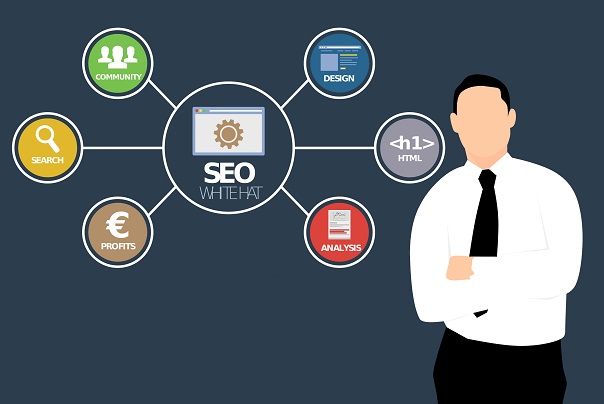Digital Marketing: Here’s Everything You Need to Know

The extensive use of the internet has brought a great impact on the marketing approach. As a result, the concept of digital marketing has become sought after in business development today. This is because an internet-based marketing concept is considered capable of reaching a wider target audience. Therefore, in this article, we will provide some helpful information about the definition, types, and benefits of applying digital marketing to a brand. 
What is Digital Marketing?
Digital marketing is a way to reach a more large-scale target audience through electronic devices and internet-based platforms. Also, the term actually covers several aspects, such as social media marketing, SEO, PPC, email marketing, content marketing, and so on. However, the first-ever implementation of the digital marketing strategy was carried out in 1896.
At that time, Guglielmo Marconi, known as the radio inventor, introduced wireless signals to reach targets located further away. The emergence of radio was responded to positively by many entrepreneurs who saw it as a potential strategy to promote their business. Since then, digital marketing has been born into the world of business.
Types of Digital Marketing
Digital marketing also consists of 10 types. Below is the detailed list we’ve compiled for you!
- Search Engine Optimization (SEO)
The main goal of SEO is to make your brand more visible to search engines, which in turn will increase your chances of reaching more customers. In implementing this strategy, you will meet two aspects to care of: off-page and on-page SEO.
- Social Media Marketing
This marketing strategy allows you to build your business branding through various social media platforms. Moreover, you can easily reach precise demographics that match your target market by paying for ads on social media channels.
- Pay Per Click
Similar to SEO, this strategy will involve in-depth keyword analysis. In PPC, website owners will get a commission every time a user clicks on a campaign on the website. The cost per click may vary, depending on the level of competition for keywords and how great your site’s score.
- Email Marketing
This segment of digital marketing deals with offers and promotions via email notifications. Additionally, an email marketing strategy is often used to build the brand’s subscriber base too.
- Content Marketing
Defined as the backbone of digital marketing, this strategy focuses on creating content that can enhance the customer experience. Content marketing service is also an effective way to increase brand value in the eyes of targeted audiences.
- Mobile Marketing
Another way to influence customers is through push notifications and SMS. Hence, mobile marketing is considered effective because the recipient will usually open the message immediately after receiving the notification.
- Digital Advertising
This term incorporates several strategies that are closely related to online advertising. For instance, digital advertising can refer to cost-per-mile, cost-per-click, display advertising, and much more.
- Affiliate Marketing
The concept of affiliate marketing refers to giving a commission for every sale that happens through your website. Usually, the affiliate program provider will provide a link that can be installed on the website. Then every time the user buys through the link, the site owner will get a commission.
- Viral Marketing
Being an online sensation is also one of the most popular marketing strategies nowadays. By creating potentially viral content, a brand could make itself seen by potential customers or gain short-term popularity.
- Online PR
This marketing concept discusses how your product or brand appears in reviews or stories of an online publication. Online PR also includes getting influencers to mention your brand on their channel, whether the review is paid or arranged by themselves.
The benefit of applying digital marketing lies in the focus of this strategy in building brand value and customer journey. That means this strategy focuses not only on sales but also on turning potential customers into loyal fans of the brand. On the other hand, digital marketing also helps brands focus more on demographics that suit their target audience to increase sales conversions.
